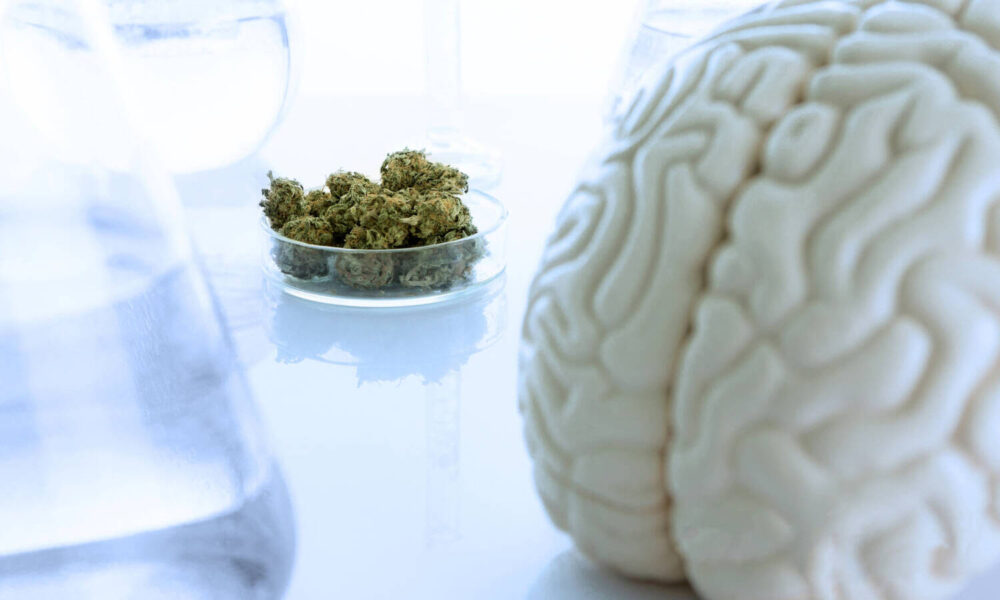Business
Cannabis Oil For Stroke Patients: What The Latest Medical Studies Reveal

Patients can benefit from the anti-anxiety properties of cannabinoids, as well as its ability to fight depression.
Strokes are one of the top leading causes of death globally. There are three types of strokes: ischemic, hemorrhagic, and transient ischemic. Ischemic strokes are the most common. Stroke survivors are also at risk of suffering long-term disability, though the prognosis and outlook greatly depends on several factors.
Some of the factors that affect the outlook of stroke survivors includes the patient’s age, kind of stroke, treatment, and one’s overall health. Most stroke survivors need to be confined in the hospital for proper rehabilitation and to improve prognosis, and it’s also common for many to require occupational, speech, or physical therapy for some time. Cannabinoids can also help to reduce inflammation in the body to improve healing.

Now, studies show that cannabis may be beneficial for stroke survivors. Patients can benefit from the anti-anxiety properties of cannabinoids, as well as its ability to fight depression. After all, stroke survivors are prone to suffering from mental health disorders especially depression given the disabilities many of them have to live with.
However, many doubt the safety of cannabis products among stroke survivors.
But a recent study out of Italy revealed that daily consumption of Sativex (nabiximols), a proprietary spray containing THC and CBD, doesn’t result in cardiovascular problems among stroke survivors. Italian researchers analyzed the safety of Sativex among 34 stroke survivors who were suffering from spasticity.
“No cardiovascular treatment-emergent adverse drug effects emerged during nabiximols treatment, namely no significant fluctuation of blood pressure and heart rate, nor ischemic or hemorrhagic events occurred. During nabiximols treatment, self-assessed blood pressure and heart rate did not change compared to the baseline condition,” wrote the researchers. “No patients showed significant acceleration or decrease in heart rate or change in rhythm and none required an additional ECG or cardiological evaluation during the study.”
“These data support the cardiovascular safety of nabiximols,” they concluded.
Meanwhile, another 2022 study revealed that cannabidiol (CBD) is beneficial as post-stroke treatment. “Pretreatment of CBD could ameliorate the stress oxidative in cortex (as center of ischemic damages) and neuronal death in cortex and striatum (as penumbra), which it can be a great achievement,” reads the study.
How CBD Can Help Stroke Survivors
There are many ways CBD can be utilized by stroke survivors to improve their prognosis and quality of life. It helps stroke patients in numerous ways, including:
Antioxidant properties: Cannabidiol has well-known antioxidant benefits, which come in handy for helping the body get rid of poisonous cells while reducing cellular oxidation. In fact, laboratory studies which date back as far as 1998 show that CBD contains higher antioxidant levels than Vitamins C and E. These make CBD an excellent supplement for improving overall cardiovascular health for stroke survivors.
Since oxidative damage is a hallmark feature of stroke patients, supplementing with CBD can help reduce the damage it causes. The human body relies on antioxidants to help stabilize the free radical levels within the body, thus preventing them from causing further damage.
Anti-inflammatory benefits: Several studies point towards the anti-inflammatory properties of CBD. When the body has too many inflammatory cells especially macrophages and monocytes, it can cause ruptures in the cardiovascular plaques and contribute to the formation of thrombus. All of these greatly increase the risk of strokes occurring. In addition, inflammation lingers in the area where blood clots form in a person who has suffered a stroke. Studies show that CBD is a powerful anti-inflammatory and it also helps to reduce oxidative stress.
Reduce high blood pressure: Anyone who has chronic high blood pressure will have an increased risk of stroke. This is why doctors always treat blood pressure, to prevent the risk for stroke. In addition, stroke survivors who have high blood pressure can suffer from another stroke when this isn’t treated.
Studies show that just 600mg of CBD can help decrease resting blood pressure. Another study shows that CBD may help reduce blood pressure because of its vasodilatory properties, and its ability to widen the blood vessels.
Protect brain cells: When a stroke occurs, this damages neurons. Without proper treatment, neurons can suffer from a lack of food and oxygen, which can cause damage and eventual neuron death. When this occurs, there is long term damage to the nervous system. CBD has been proven useful for supporting neuron health, most especially in its ability to support calcium ion handling, which nerves need to send electrical impulses, as well as neuron metabolism.
Improve blood flow to the brain: Poor blood flow to the brain causes ischemic strokes. This is why patients of ischemic strokes need to work on improving blood flow to the brain, preventing any more damage or the risk for another stroke. CBD can help with this most especially because of its terpene content. Several terpenes have been shown to improve cerebral blood flow, most especially borneol, eucalyptol, and caryophyllene oxide.
CBD itself can help improve cerebral blood flow because it helps to modulate serotonin receptors, which assist in the regulation of blood that enters the brain.
Conclusion
If you or a loved one has suffered from a stroke and would like to explore the benefits of CBD for recovery, be sure to talk to your doctor. There are many ways you can medicate with CBD but it’s important to consume CBD in its most high-quality and pure from to reduce the risk of any contaminations. For example, CBD isolate and hemp oil contains the highest amount of antioxidants.
Talk to your physician to determine the best way to integrate CBD with traditional therapies, which can often be the best way to recover from strokes. CBD is not a cure-all, though it can work best with other remedies.